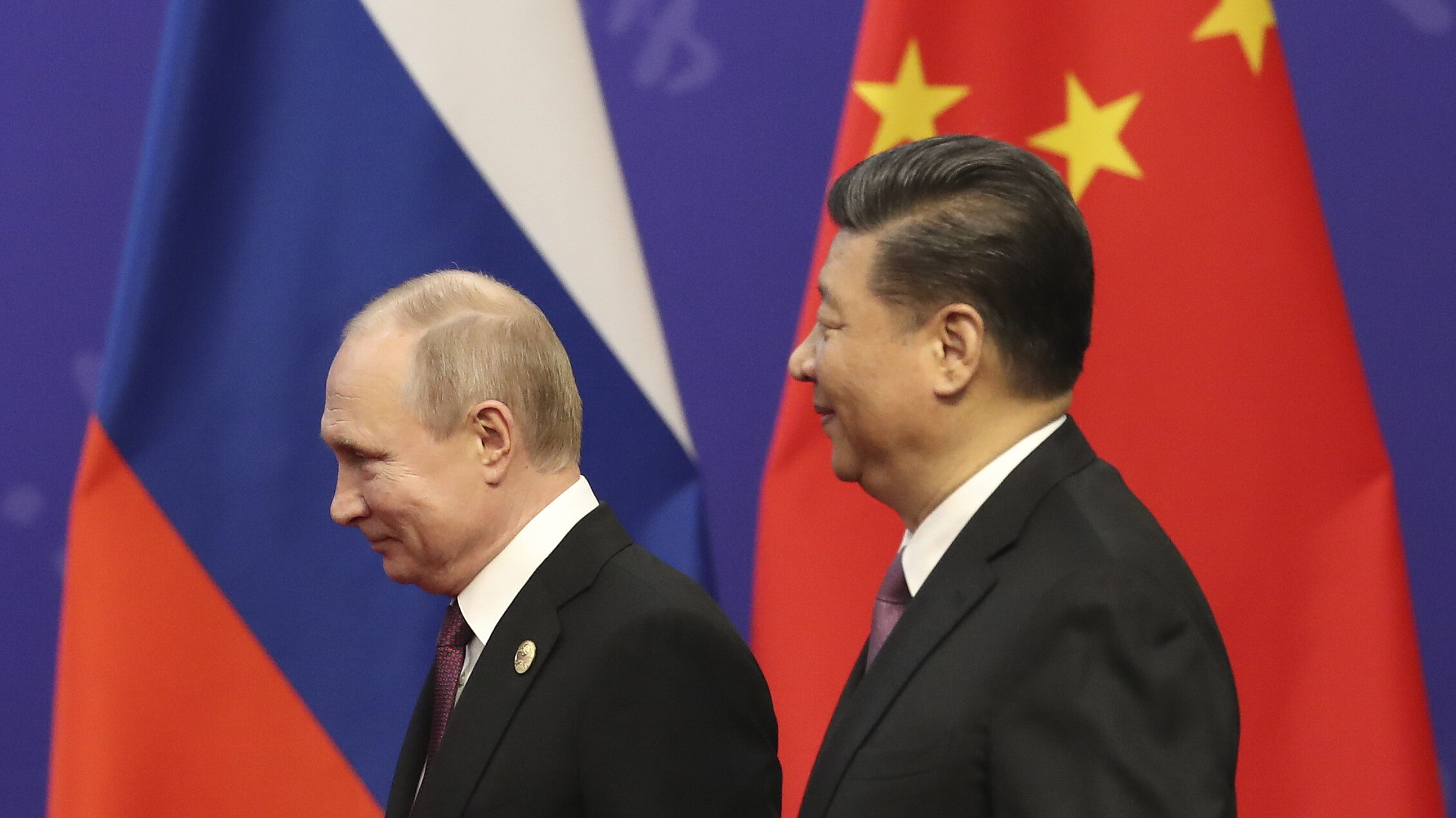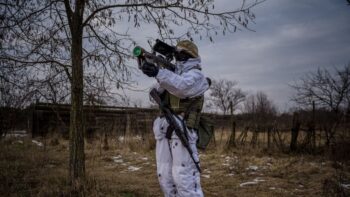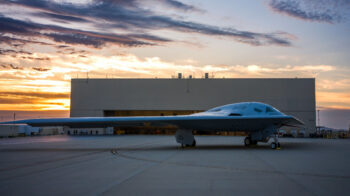
Russian President Vladimir Putin, left, and Chinese President Xi Jinping, right, attend the Tsinghua University before the meeting at Friendship Palace on April 26, 2019 in Beijing, China. (Photo by Kenzaburo Fukuhara – Pool/Getty Images)
With the attention of the world on Ukraine, China has an opportunity to see how the globe reacts to a major power forcefully invading land it has long coveted. In this op-ed, former House intelligence committee chairman Mike Rogers warns about the lessons China might be learning to one day apply to Taiwan, and what the US and international community should do about Beijing’s tepid response to ongoing Russian aggression.
No country is watching what happens in Eastern Europe more closely than China. While we rightly focus on what happens in Moscow and Kyiv, we cannot take our eye off of Beijing, because the road to Taipei may well lead through the battlefields of Ukraine.
So far, the Chinese Communist Party has sought to portray its approach to the crisis as hands-off, trying to chart a middle ground of supporting its “partner,” while not antagonizing the United States. But its course and priorities are very clear — its policy is a wink and a nod to Moscow, just short of public support of Russian President Vladimir Putin’s illegal war of aggression.
At the beginning of the month Beijing echoed Moscow’s spurious claims about the enlargement of the NATO alliance. Just as rockets were falling on Ukrainian civilians, Beijing decided to abstain from a vote in the United Nations Security Council condemning Russia’s war in Ukraine. While some in the West portrayed China’s abstention as a win, it was anything but. Rather, it was another sign that Beijing is seeking to undermine the international order. China signaled to the world that it is unwilling to condemn outright aggression, lest it prevent itself from doing just the same in the future against Taiwan.
Behind the scenes and on China’s internet, the country mocks the West’s “toothless” response. Publicly, China condemned the imposition of “illegal” sanctions against Russia—sanctions that have even received the support of the historically neutral Swiss, with Geneva condemning Moscow. If that doesn’t indicate to you what the state of play in the international community is, I don’t know what will.
Beijing built Moscow an economic relief valve through the joint development of natural resources in the Arctic and elsewhere. While the West is severing ties with Gazprom and other energy giants, China is quietly getting closer with its Russian counterparts. Just before the outbreak of the war, Russia announced a multi-year deal to sell 100 million tons of coal to China, a deal worth some $20 billion. Beijing also agreed to buy wheat from Moscow, despite concerns about its quality.
At the same time, Beijing is clearly learning the lessons of the West’s response playbook. While the West coordinates the imposition of wide-reaching sanctions, the Chinese Communist Party is developing its own program of autarky — self-sufficiency and resilience in the face of potential sanctions that it could experience if it moves against Taiwan. As Russia’s economy enters freefall, China is watching closely to see what pressure points it needs to protect against—what may work against Moscow will almost certainly not work against Beijing.
This is due to China’s central role in the global economy — China is the world’s largest exporter. Applying sanctions on China’s economy would be far more difficult and have far more unintended consequences than apply sanctions against Moscow. Moreover, martialing global support for such measures, given these connections may prove much harder.
Militarily, the People’s Liberation Army is undoubtedly learning the importance of speed and violence, and the necessity of logistics support. As Russia’s military is bogged down and failing to meet its objectives, the West is rushing in aid and support. China’s military now knows that if it is to be successful and avoid a long, protracted conflict, it must overwhelm Taiwan as quickly as possible and prevent any aid from reaching the island country.
China wants the West’s attention on Russia and in Europe. The greater the attention there, the less the United States and its allies can pivot to the Indo-Pacific and confront China’s hegemonic ambitions. It wants to keep Moscow economically viable, to keep the war going, and to undermine the West’s efforts to stop the war in Ukraine. A pre-occupied Washington cannot prevent Beijing’s aggression against Taipei.
If we are truly committed to stopping the war in Ukraine, we must sever the economic lifeline that Beijing built to Moscow. We must condemn its behavior openly and publicly, and call out what the Chinese Communist Party is doing to support and enable Putin’s war. We can marshal all of the allies on sanctions and more, but if we leave China’s backdoor to Russia open, we will be fighting a losing battle.
Ukraine and Taiwan are separated by 5,000 miles, but their fates are far more connected than people realize, and the sooner we realize that and act accordingly, the sooner we can end a war in Europe and prevent one in Asia.
Mike Rogers served as Republican representative in Congress for the 8th District of Michigan from 2000 until 2015, including as Chairman of the House Intelligence Committee from 2011 to 2015.
Sullivan says Ukraine supplemental should cover all of 2024, long-range ATACMS now in Ukraine
“We now have a significant number of ATACMS coming off their production line and entering US stocks,” Jake Sullivan said today. “And as a result, we can move forward with providing the ATACMS while also sustaining the readiness of the US armed forces.”


























